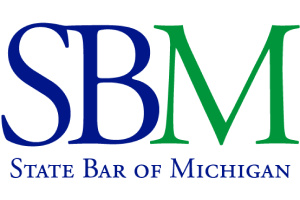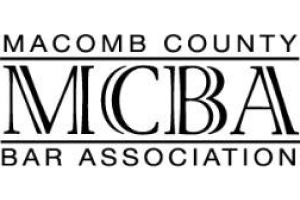- Free Consultation: (586) 264-3756 Tap Here to Call Us
Changes to Michigan’s Automobile No-Fault Insurance Law
Below is an entry from State Representative Howrylak’s newsletter from March 2014 regarding bill HB 4612.
Automobile No-Fault Insurance
I have previously written about proposed changes to Michigan’s automobile no-fault insurance system. The prior version of the bill (HB 4612) did not have support in the House. A new substitute bill has recently been floated. In this newsletter, I will explain some of the similarities and differences between the two proposals. Additionally, I want to express my concerns that these proposals will effectively decimate Michigan’s auto no-fault law and put residents, consumers and motorists at risk.
The following are some of the major points of the new proposal.
- It creates a health care fee schedule.
- Family member caregivers will be limited to working 56 hours per week as a caregiver.
- Family member caregivers will be limited to reimbursement at $15 per hour.
- It prevents the right to a trial by jury.
- It makes claims-handling inadmissible at a trial.
- It places a cap on physical, occupational and speech therapy at 24 months.
- It creates major caps on home modification.
The following are some of the differences between the two proposals:
- The original proposal created a $1 million lifetime cap on benefits (currently there is no dollar limit). The current proposal has a $10 million cap.
- The original proposal replaced the current “reasonable and necessary” care standard with a stricter “medically appropriate” standard. The latest proposal eliminates this change and keeps the status quo.
- The current proposal guarantees a two year rate reduction, although there is no guarantee that the temporary reduction will not be more than made up for in subsequent years.
I have many concerns with the current proposal. Those who support the current proposal believe that without a cap, all costs are covered and claims are never challenged. The conclusion, of course, is that costs are out of control and that this is the source of high auto insurance rates.
On the contrary. Those who are catastrophically injured and the providers of the care are constantly challenged by insurance claims adjustors. Insurers often balk at paying reasonable and necessary care. And when an insurer pays a claim, the amount paid is often discounted. If medical services resulting from an automobile accident were timely provided for and paid by the insurers, the number of attorney commercials on television would probably be reduced. There is plenty of litigation over bills and coverage.
It has also been said that the $10 million dollar cap will cover 99.99% percent of all claims. Based on the 14,245 open claims declared by the MCCA, .01 percent of 14,245 equals 1 person. In the 2009 MCCA press release, they projected a future outlay of $70 Billion on existing claims. In 2013, this expected future outlay grew to $85 billion. 2,800 new claimants in 4 years = $15 billion increase in expected payout with only 1 claim exceeding $10 million? Something isn’t adding up! Either claims will exceed $10 billion or the projected outlay is grossly exaggerated.
It should come as no surprise that future claims will reach levels exceeding claims to-date. For one thing, the longest claim is no more than 36 years old. That is because the MCCA (Michigan Catastrophic Claims Association) was established in 1978. Of course, we know how many open claims exist, but the MCCA won’t disclose how long each claim has been open. We also know that future claims will cost more due to medical inflation.
Additional changes, such as caps on attendant care, physical therapy, occupational therapy and speech therapy, as well as other rehabilitative care and treatment, may control costs, but it will hurt our citizens. And we don’t know if it will lower our auto premiums in the long run.
Past behavior is often indicative of future behavior. In 1998, then-Governor Engler stated on record that the MCCA assessment reduction should remain intact for years. The insurance industry proved him wrong soon after he left office. After the 3 year assessment reduction to $5.60, the annual assessment was again over $100 within four short years. Temporary insurance rate roll-backs are just that – temporary. In order to gain passage of HB 4612, there may be promises and commitments to reduce auto insurance rates for two years. But that is it. Indeed, there is nothing to say that these temporary reductions will not be more than made up for in subsequent years.
We all would like to see lower auto insurance rates in Michigan. Indeed, our friends in cities like Detroit and Flint are paying ghastly high auto insurance rates. However, real reform takes shape in detailed policy objectives that truly reduce accidents and auto theft and provide transportation alternatives for those who cannot afford safe vehicles with proper auto insurance. Such true reforms will thus reduce auto insurance claims, reduce the number of un-insured motorists on the road and reduce traffic accidents. “Saving” money by reducing care and quality and by decimating Michigan’s automobile no-fault insurance is not an option.
Related Posts: An Overview of the Personal Injury Process, Why You Should Report All Drivers On Your Car Insurance, No-Fault Insurance Change, One Step Closer to Justice for Grieving Family











